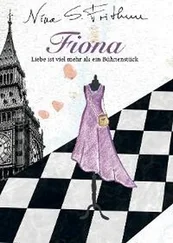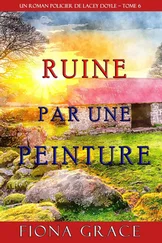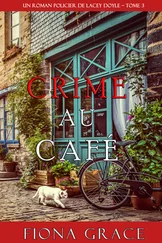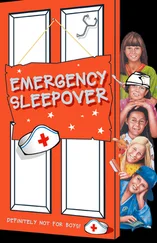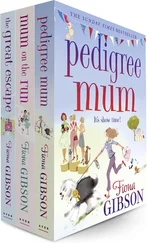Daddy let us drink and smoke and after the shell of the house was built we spent long evenings sipping mugs of warm cider and puffing on the cigarettes that Cathy rolled. We listened to the radio and read to Daddy. Cathy in particular, in her deep steady voice that picked out the words and sentences that most needed hearing. When we were younger we had begged him for a television but Daddy said we were better off without it.
That was before we moved to the wood. It was before that summer of camping and before the new house was built. We lived further to the north, then, on the outskirts of a small town on the North Sea coast in a house that had been built amongst others of its kind in the 1930s. It was a semi-detached, of sorts. It could have been a row of back-to-back terraces in any other town but these houses were built like suburban three-beds, only smaller and with little care given to the gardens. Our older neighbours had planted purple and yellow pansies in thin borders between their lawns and the paths and privet hedges that cut them up, but most of the gardens on our street were patchy and muddy, held in place by dandelions and thistles.
Garden furniture was scarce but children’s toys littered the ground every few houses along. I remember well a small plastic dolly with blonde curls lying face down in the mud of the front garden of the house on the corner, her pink cotton frock hitched up around her ears. I remember her lying there, untouched, for years while the rain and soil stained her body.
Some of the houses were coated in pebble-dash. Cathy and I liked these. We used to reach out and pick the sharp little stones from the cement as we scraped past, down the alley in between two houses and out into the fields beyond. The pock marks on the walls accumulated but most people did not look to see them and Cathy and I never concentrated on a single patch but released stones from here and there, careful not to form patterns with our picking. Our house in this estate was not covered with pebble-dash. You could see the bricks from which it was made, those dark bloody-brown bricks. Our garden was neither untidy nor decorated. The grass was longer than the grass on other lawns and a darker green, but it was not wild. The concrete path led to a concrete step then the door, which was at first painted a royal blue then later a royal green which then, in turn, began to chip and reveal the blue, once more, beneath.
The hall presented a dark red carpet whose faded gold design took the eye from right to left, creeping over the worn middle to the plump edges and back again. It was like a vine or a climbing plant, its roots just outside the front door, had crept inside and up the stairs. When I was very small I pretended the pattern was a network of roads and I would trace my finger along it.
After the stairs, at the far end of the hall, the springy red carpet gave way to linoleum and a chipped MDF kitchen. We cooked with gas then, and Daddy used to light his cigarettes from the blue hissing flame and take them out into the back garden to finish. Off the hall also came a single living room that stretched the length of the house and there were three bedrooms and a bathroom upstairs.
In all, I lived there for fourteen years.
Back then, Daddy was with us sometimes but at other times he was not. We lived with Granny Morley. She loved us well, cooked for us and washed our clothes. There were always two varieties of vegetable with our dinner and she used enough washing powder to make our clothes clean but not so much that it clung to the cotton and made us itch. While we were at school she hoovered the carpets and dusted the shelves and went down to the high street to Mr Evans’ butcher shop, the Costcutter, the greengrocer’s and Margaret’s Hair Salon, where she met her friends every Thursday afternoon.
On the weekends or after school Granny Morley made sure we played outside in the garden or in the fields behind the house. Sometimes we went down to the beach and played in the caves and rock pools. She was a loving woman, our Granny, but she was distant. Sometimes she looked right through us. Sometimes she seemed to catch onto sounds in the next room or outside when we tried to speak to her, like she could hear something we could not. She raised her head and tilted it and as she did she lifted a hand to the arm of her chair or the sofa.
When we were small Granny Morley walked us to school, holding one of each of our hands in each of hers. Our school was in the town itself on the other side of an area of parkland where seagulls the size of small dogs pulled scraps from bins. We went through there to school in the mornings in our uniforms. Red sweatshirts, white polo shirts and grey flannel trousers or pleated skirts for Cathy and black leather shoes that we polished every Sunday evening.
The main part of the school was in an old red-brick Victorian building and there was a bell tower at one end. The bell was too rusty to chime and nobody ever thought to fix it. Instead there were red bells like fire alarms attached to the walls of the classrooms inside and those told us when to go out to play and when to come back inside. Some of the corridors had bright pictures stuck to the wall with tac and some did not. The whole place smelt of OXO cubes and sugar paper.
I kept myself to myself in the early years. I walked around and around the playground pretending to scale great mountain ranges or horizontal marshlands. In the summer months I sat beneath a sycamore tree on the edge of the school field. I collected insects in my hands only to release them at the end of playtime or lunch hour. Daddy asked me if I wanted an insect collecting set for my birthday or some jars to put them in to and take them home but I said I did not. I liked having them in my hands for that certain amount of time then letting them go off again into the undergrowth, back to their homes and to their lives. I would think about them living those lives while I sat back in my chair in the classroom and gazed blankly at times-tables.
Cathy organised games and I joined in with those. When I was about six and she was eight she got into a barney with three of the lads in her year. Adam Hardcastle, Callum Gray and Gregory Smowton. Possibly it was the kind of event that only seems important to those involved but even then I wondered whether the others spent as much time thinking on it as I have. Over the years I must have spent whole days with this memory in my mind, closing my eyes and trying to walk into different parts of the scene, trying to gauge where each person was in each moment, trying to hear how fast each of their hearts was beating. I must have spent minutes squinting into the distance of it, trying to see this boy’s face when he knew he could not hold on any more, trying to catch onto the exact words my sister had used when she described the bits I had not seen.
I wondered if she thought about it too. Or if the boys did. Or if any of the other small people at the far reaches of my recollection spent the time that I had thinking about the bits in which they played a part. It seems to me that so much of everything came from this, and that if anyone thought about moments like this enough, the future would be done before it had even started, and I mean that in a good way.
She was tall for her age, Cathy, and strong and fit. She had cropped black hair that she tucked behind her ears and blue eyes like Daddy’s. Adam, Callum and Gregory all came from the row of tall terraced houses near the school, with pointed roofs and protruding windows. They wore a new pair of brightly coloured trainers each term. They all supported Manchester United even though we lived in Yorkshire, and they had the team kits to prove it. They always had the widest range of football stickers or pogs and their pretty mothers collected them from the school gates on time every day and dropped them off the next morning with a pack-up of sandwiches, jammy dodgers and sweet cartons of apple juice that got sweeter with the heat from the classroom and the morning sun.
Читать дальше
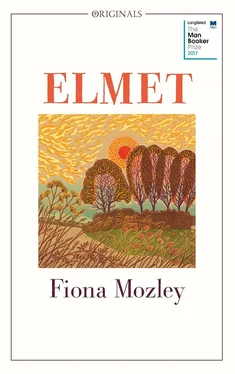

![David Jagusson - Fiona wird durchgefickt [BDSM]](/books/491106/david-jagusson-fiona-wird-durchgefickt-bdsm-thumb.webp)
